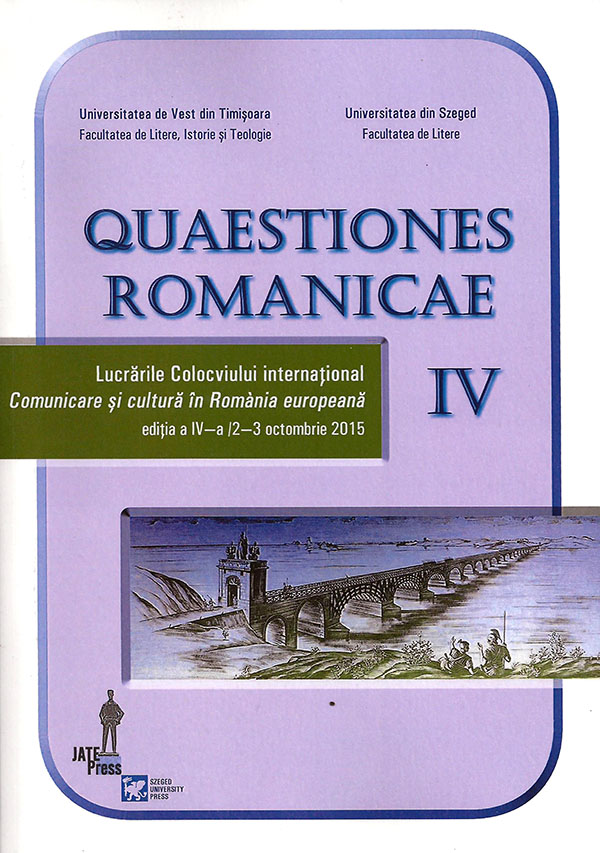Il fantastico siciliano dal gotico visionario ottocentesco alla scomposizione umoristica pirandelliana: un percorso evolutivo fra letteratura e teatro
Abstract: (The Sicilian fantastic culture from the Nineteenth-century Gothic to the Pirandellian humoristic dismantling: an evolutionary path between literature and theatre). In the Risorgimento period the Sicilian ballad- writers focus on supernatural topics, enriching the European Gothic-fantastic with a dimension of social criticism: the ghostly presences in their works reveal the atrocious noble violence, the danse macabre shows the equalizing power of death. It is equally important the depiction of a horrible but fascinating otherworld, that gives rise to a dynamic and theatrical writing, properly exploited by some scenic rewritings. Years later, in La festa dei morti ( 1887) Giovanni Verga again resumes ancient, traditional beliefs, giving to the inhabitans of the underworld the task to remember their existence and feelings to the living beings , to provide a link between past and present, underground world and surface. By the end of the Nineteenth Century Giuseppe Pitré, the first Sicilian scholar of Folk Culture, collects a huge number of popular legends of the supernatural, defining a varied and complex universe of amazing creatures, based on Greek mythology but also related to the north european folklore. We move into Modernity with the Pirandellian fantastic: the humoristic sight of the story-teller reinterprets the unsettling popular mythology as a mask, that covers and hides a situation of indigence and suffrance: ware wolves and changed sons are, indeed, sick and isolated human beings, the magical remedies are quackery. Since Pirandello the fantastic tale highlights the illogical and discordant elements in the daily life, revealing the cracks in a world that seems more and more caotic and unintelligible. But in his theatrical rewriting La favola del figlio cambiato Pirandello explores the Sicilian folkloric imagination from another point of view, by proposing a more harmonious reality, in which individual desires, collective needs and unsetting presence of the supernatural could be integrated.
Keywords: Fantastic literature, Pirandello, Giuseppe Pitrè, Giuseppe Verga, Sicilian ballad-writers.
Riassunto: In epoca risorgimentale i ballatisti siciliani privilegiano il soprannaturale come oggetto di narrazione; nei loro testi il fantastico visionario si coniuga con un intento di critica sociale, per cui i mostri diventano simbolo della prepotenza nobiliare, le danze macabre del potere livellatrice della morte. Ne deriva una scrittura dinamica e teatrale, che si realizza in successive riscritture spettacolari. Giovanni Verga in La festa dei morti (1887) nuovamente attinge alle antiche credenze riprendendo il modulo della Totentanz; il suo racconto assegna agli abitatori dell’oltretomba il compito di ricordare, configurando un legame fa passato e presente, mondo sotterraneo e di superficie, il primo preposto a rivelare precarietà ed insensatezza dei viventi. A fine Ottocento Giuseppe Pitrè raccoglie le sparse credenze popolari siciliane costruendo un universo di creature fantastiche che trae alimento dalla mitologia greca, ma mostra anche evidenti affinità con il folkore nordico. Con il fantastico pirandelliano entriamo nella modernità: lo sguardo umoristico del narratore reinterpreta l’inquietante mitologia popolare come maschera , che copre una realtà di meschinità e sofferenza, dove i licantropi o i figli cambiati sono esseri isolati nella malattia. Il racconto fantastico si interiorizza, costituendosi come discorso sull’identità sempre più precaria del soggetto che subisce l’esperienza perturbante, individuata talvolta come occasione di stimmata sociale. Con l’opera teatrale La favola del figlio cambiato Pirandello esplora invece l’immaginario folklorico siciliano proponendo una soluzione armoniosa di integrazione fra Natura e Cultura.
Parole chiave: fantastico siciliano, Luigi Pirandello, Giuseppe Verga, ballata romantica.
